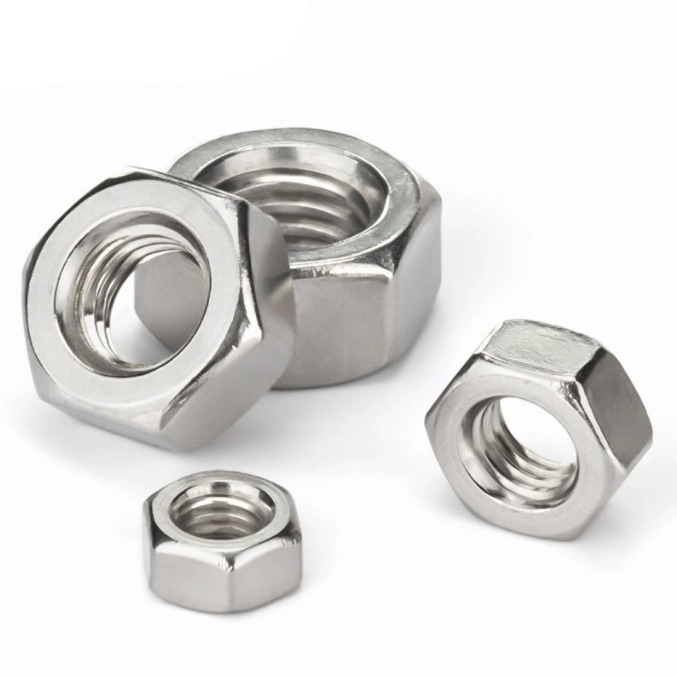

Types and Uses of Self-Tapping Sheet Rock Screws for Construction Projects
Oct . 13, 2024 03:08 Back to list
Types and Uses of Self-Tapping Sheet Rock Screws for Construction Projects
Understanding Self-Tapping Sheet Rock Screws
Self-tapping sheet rock screws are essential fasteners widely used in the construction and drywall installation industry. As their name suggests, these screws are specially designed to create their own hole when driven into materials, eliminating the need for pre-drilled holes. This feature not only saves time during installations but also provides a secure fastening solution.
Specifications and Characteristics
Self-tapping sheet rock screws are typically made of steel, which offers durability and strength. They come in various lengths and diameters, allowing for versatility depending on the thickness of the sheet rock or drywall being used. The screws are generally coated with a layer of zinc to enhance their resistance to corrosion and rust, ensuring long-lasting performance in various environmental conditions.
One of the defining characteristics of these screws is their sharp, pointed tip, which enables them to penetrate the drywall easily. Additionally, they feature deep, coarse threads that grip the material effectively, providing a solid hold. This is especially crucial in drywall applications, where maintaining the integrity of the wall structure is necessary.
Benefits of Using Self-Tapping Sheet Rock Screws
The benefits of using self-tapping sheet rock screws extend beyond mere convenience
. Here are several advantages that make them a popular choice among contractors and DIY enthusiasts alike1. Time Efficiency Self-tapping screws eliminate the need for pre-drilling, significantly speeding up the installation process. This efficiency is particularly beneficial when working on large projects where time is of the essence.
self tapping sheet rock screws

2. Enhanced Grip The coarse threads provide superior holding power compared to traditional fasteners. This ensures that the drywall remains securely in place, reducing the chances of sagging or detachment over time.
3. Versatility These screws can be used not only for drywall but also for fastening other materials like wood and metal. Their versatility makes them a staple in the toolkits of professionals across various sectors.
4. Cost-Effectiveness While many high-quality construction materials can be expensive, self-tapping sheet rock screws are generally affordable. This cost-effectiveness makes them accessible for both large-scale contractors and individual DIY projects.
Proper Usage and Installation Techniques
To achieve the best results when using self-tapping sheet rock screws, certain techniques should be followed. It is essential to use the correct type of drill or screwdriver that can handle the torque required for driving the screws into the material. Electric drills with adjustable clutches work well to prevent overdriving, which can damage the drywall.
When installing, the screws should be spaced appropriately to ensure even support throughout the drywall. Typically, it is recommended to place screws every 12 to 16 inches along the framing. Additionally, care should be taken not to overtighten the screws as this can lead to paper tearing on the drywall, compromising its structural integrity.
Conclusion
Self-tapping sheet rock screws represent a significant advancement in construction technology, providing convenience, strength, and efficiency. Their ability to create a secure hold without the need for pre-drilling makes them invaluable in modern construction practices. As more advancements continue to emerge in fastening technology, the role of self-tapping screws is likely to remain prominent, aiding in the creation of sturdy walls and reliable structures in both residential and commercial settings. Investing in quality self-tapping sheet rock screws can lead to successful outcomes in any drywall project, ensuring a professional finish and lasting durability.
Latest news
-
Hot Dip Galvanized Bolts-About LongZe|High Strength, Corrosion Resistance
NewsJul.30,2025
-
High-Strength Hot Dip Galvanized Bolts - Hebei Longze | Corrosion Resistance, Customization
NewsJul.30,2025
-
Hot Dip Galvanized Bolts-Hebei Longze|Corrosion Resistance&High Strength
NewsJul.30,2025
-
High-Strength Hot-Dip Galvanized Bolts-Hebei Longze|Corrosion Resistance&High Strength
NewsJul.30,2025
-
Hot Dip Galvanized Bolts-Hebei Longze|Corrosion Resistance&High Strength
NewsJul.30,2025
-
Hot Dip Galvanized Bolts - Hebei Longze | Corrosion Resistance, High Strength
NewsJul.30,2025

